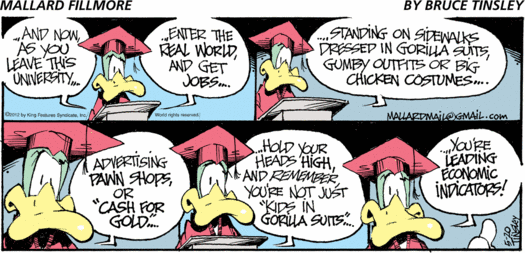As a professor of American history for more than twenty years now, I have ceased to be surprised by the lack of knowledge our students bring to the classroom. American history—particularly early American history—is like a foreign language to many. The majority can still identify George Washington, and most know there was a Civil War, but they’re not sure when it happened. The Constitution is virtually an unknown document when it comes to its basic provisions. This year we celebrate the 225th anniversary of the writing of the Constitution. I want my students to understand why that is significant. This is also the anniversary of the writing of the Federalist Papers, the best explanation of what those constitutional provisions meant to those who crafted that founding document. Yet how many students, indeed how many Americans of any age, have any idea that the Federalist Papers exist? That’s “old” stuff. Why should we be concerned with it?
Sometimes our students, even at a Christian evangelical university, are so enmeshed in the culture that they know little else. Their knowledge of our history goes back no further than what happened in their own memory, and their grasp of current affairs may be limited to what impacts them directly. Some are more attuned to the latest cultural trend than to the pressing issues of the day:
A university education is supposed to be a path toward greater comprehension of life and its meaning. It’s supposed to develop productive people who make their impact on our society for the better. But when you combine the dumbing down of the system with bad economic times, here is what you get instead:
Standards need to be raised across the board. A high school diploma should mean you’ve actually learned something. A college degree should indicate you are now prepared to make your mark because you have grappled with the questions of God, man, and meaning, have developed your powers of critical thinking, and are now ready to make your mark on the culture rather than the culture molding you. That’s my goal for my students as I teach them. It’s gratifying when that occurs.
So I want to take this opportunity to acknowledge all the students I’ve taught over the years—whether at Indiana Wesleyan University, Regent University, Patrick Henry College, or Southeastern University—and let them know I’ve appreciated the time spent with all of them. I also want them to know how proud [in the proper sense of the term] I am that they have allowed the Lord to use them for good in our world. I’m reminded of this admonition from the apostle Paul to Timothy:
The things you have heard from me in the presence of many witnesses, entrust these to faithful men [and women] who will be able to teach others also. … Be diligent to present yourself approved to God as a workman who does not need to be ashamed, accurately handling the word of truth.
Let’s all remain faithful to this charge.



